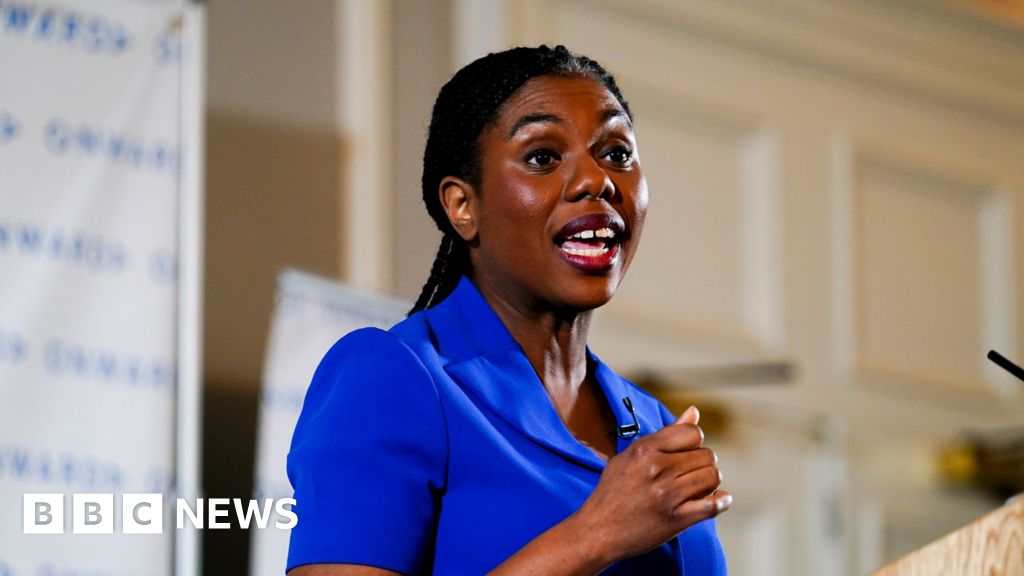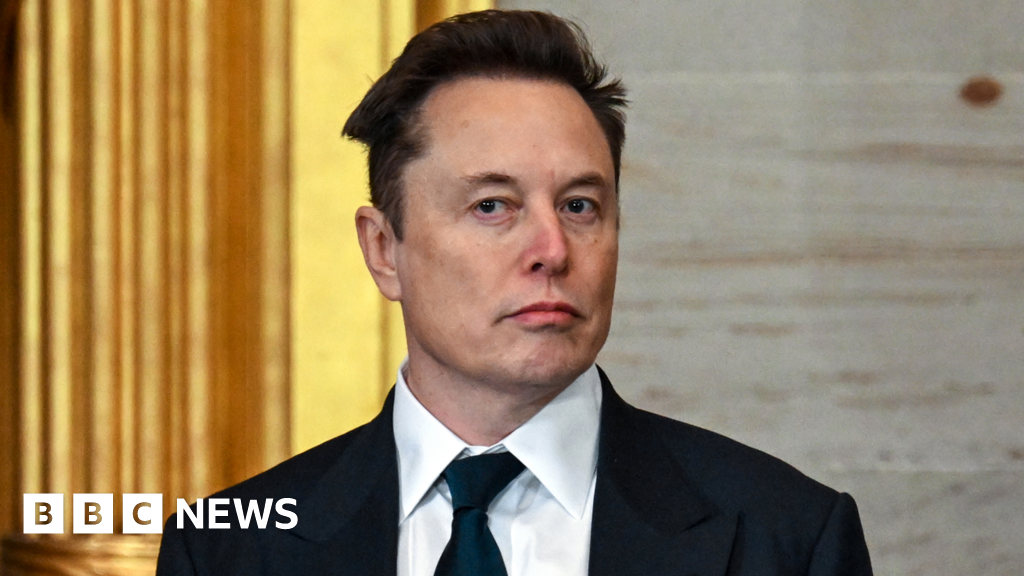NEW YORK (AP) — President Donald Trump is testing how far Republicans are willing to go in supporting his supercharged “Make America Great Again” agenda, tearing down government agencies and taking actions fundamentally at odds with once-traditional party principles.
For now, Republicans are marching largely in lockstep. They are backing Cabinet nominees with troubling histories, turning a blind eye as he halts spending they appropriated and defending policies once anathema to mainstream GOP thinking — policies that would have drawn alarm if Democrats had been responsible.
“They’re pushing the envelope of what their power looks like. It’s a normal part of a transition,” said Sen. Thom Tillis, R-N.C.
While there have been isolated voices of dissent, the Republican resistance that emerged when Trump first ran for office has been largely been sidelined. That means the president, backed by Republican majorities in the House and Senate, is proceeding largely unchecked as he reimagines the federal government and greatly expands the power of the presidency.
“If there was any doubt about it, the Republican Party’s complete acquiescence to Donald Trump, I think, was on full display this week,” said Charlie Sykes, a longtime conservative commentator-turned prominent Trump critic. Sykes described it as “complete surrender.”
In his view, "Republicans have just made the calculation that pretty much nothing is worth antagonizing Trump at this point.”
A new MAGA agenda
The defense has come as Trump has embraced a series of proposals that go far beyond anything he did in during his first term or promised on the campaign trail.
Last week, he threatened trade wars with Mexico and Canada, two of America’s top trading partners and closest allies. His tariffs are on hold for 30 days, but he has damaged the U.S. relationship with Canada, one of the nations with which the U.S. shares its most sensitive intelligence.
On Tuesday, he suggested the U.S. seize control of Gaza, perhaps by force. He campaigned for the White House promising to end “forever wars” and the U.S. entanglement in the Middle East.
He has proposed taking over Greenland, rifted on Canada becoming the 51st state and threatened to put the Panama Canal back under American control. He is pursuing state ownership of social media companies such as TikTok, perhaps through a government-owned U.S. sovereign wealth fund. That kind of intervention, if coming from Democrats, would almost certainly have branded as a socialist move.
After years of railing against unelected bureaucrats, Republicans are standing by as billionaire Elon Musk and his aides aim for the equivalent of a hostile takeover of government. That Trump-authorized team has seized taxpayer data, gained access to sensitive databases and government payment systems, and taken steps to close the U.S. Agency for International Development, which many Republicans long criticized but also saw as part of the U.S. efforts to counter China and Russia abroad.
What's wrong with a president who wants loyalty?
“The American people said we want a different direction,” said Sen. Kevin Cramer, R-N.D., when asked about the moves against USAID and other agencies. “I don’t find that outside the spirit of our system and the courts will have to decide whether it’s outside the literal boundaries of the president’s authority.”
As for the trade taxes, he added, “Most Republicans aren’t tariff fans, but they do understand why populism is the flavor of the day.”
″A lot of people, they talk about Trump loyalty like something there’s something wrong with a president that wants loyalty. And quite honestly, I would submit that loyalty is a pretty big and pretty important part of running a country,” he added.
Polling finds shifts in public's views on tariffs and intervention overseas
Polling has shown voters have growing more opposed to expanding tariffs over the past four years. About half of voters (49%) in the November election favored increasing taxes on goods imported to the United States from other countries, compared with 6 in 10 voters in the 2020 presidential election who supported higher tariffs. Republican voters still largely favor the policy.
There's also a shifting against American intervention. Only about 2 in 10 (19%) voters in November said they wanted the U.S. to take a “more active” role in solving the world’s problems. Republican voters, in particular, have shifted toward advocating a “less active” role. About half (53%) wanted the U.S. less involved, compared with about one-third in 2020.
Cabinet coming together and the White House sees a ‘strong, united and thriving’ GOP
Even Trump’s most controversial nominees appear to be sailing through.
This week, Sen. Bill Cassidy, R-La., a doctor who leads the Senate Health, Education, Labor and Pensions Committee, voted to advance the nomination of Robert F. Kennedy Jr. as health secretary despite Kennedy’s long history of anti-vaccine activism. Cassidy is up for reelection next year and has faced pressure from home-state Republicans to back Kennedy. Cassidy has made clear he had serious concerns about Kennedy's record.
“Unlike the fractured and chaotic Democrat Party, the Republican Party stands strong, united and thriving," White House spokesperson Harrison Fields said. "There is nothing to resist -– President Trump received a clear and overwhelming mandate from the American people to Make America Great Again."
Cracks in support?
There has been some limited pushback from key allies.
Sen. Tom Cotton, R-Ark., said Trump should reconsider stripping security protection from former government officials who are under threat from Iran due to their involvement in the strike on Iranian Gen. Qassem Soleimani in January 2020.
Sen. Lindsey Graham, R-S.C., criticized Trump for pardoning Jan. 6 rioters who had been convicted of attacking police and he said Trump’s proposal for a U.S. takeover of Gaza was “problematic.”
“The idea of Americans going in on the ground in Gaza is a nonstarter for every senator,” Graham told reporters Wednesday.
On the tariffs, Sen. Chuck Grassley, R-Iowa, pleaded with Trump for exemption for potash used in fertilizers, to spare Iowa family farmers.
And Sen. Rand Paul of Kentucky has been especially outspoken.
Otherwise, Republican senators this week have played down the potential negative impact of Trump’s actions and stressed the importance of uniting behind him.
“I hope my colleagues will be supportive of him when it comes to his tariffs,” said Sen. Josh Hawley, R-Mo., warning of potential “danger” if foreign countries see Trump facing political backlash from members of Congress or state lawmakers.
Tough sell for Democrats as they make their case for GOP help
Democrats are scrambling to curtail Trump's power grabs and are appealing to Republicans to join their cause.
Sen. Tammy Baldwin, D-Wis., said Democrats are mounting an “all hands on deck approach” to fighting Trump’s executive orders and they are contesting Musk’s access to sensitive payment systems at the Treasury Department. She wants GOP colleagues to help push back.
“In the Congress we have to stand up and speak out,” she said. “And if it’s only the Democrats doing that, we have a problem because the Republicans have the majority in both the House and the Senate. Some of them have got to stand with us and call this out.”
But Republicans deny that Trump is overstepping and say his team is within its authority to “pause” programs. The Constitution, in Article 1. gives Congress the power to collect taxes, pay debts and provide for the defense and general welfare of the country.
“We don’t see this as a threat to Article 1 at all,” House Speaker Mike Johnson, R-La., “We see this as an active, engaged, committed executive branch authority doing what the executive branch should do.”
___
Associated Press writers Stephen Groves, Lisa Mascaro and Linley Sanders in Washington and Scott Bauer in Madison, Wisconsin, contributed to this report.

 German (DE)
German (DE)  English (US)
English (US)  Spanish (ES)
Spanish (ES)  French (FR)
French (FR)  Hindi (IN)
Hindi (IN)  Italian (IT)
Italian (IT)  Russian (RU)
Russian (RU) 






Comments
Get the most out of News by signing in
Sign In Register